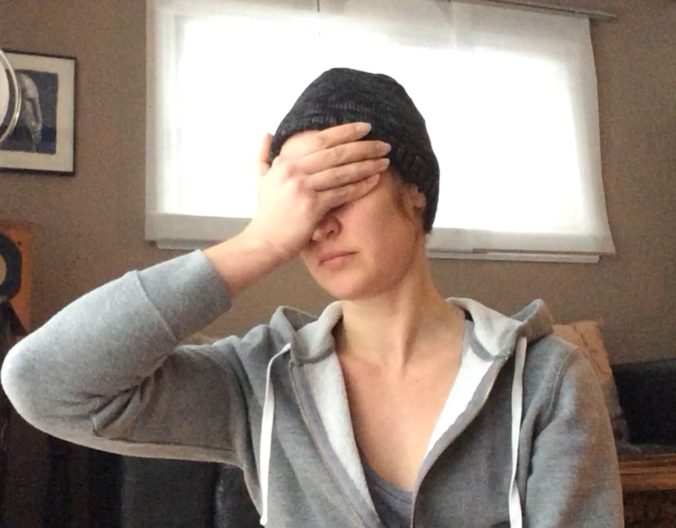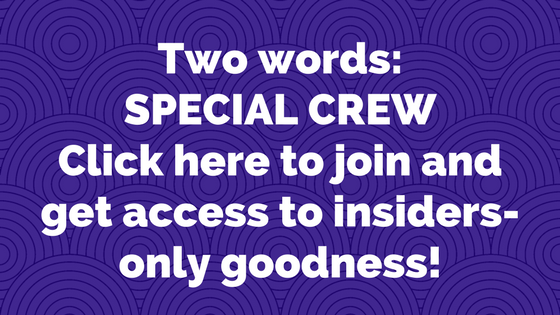I’m a pretty patient person. In all of the work that I do—in and out of the gym—I rarely lose my cool, opting instead for taking the time to talk things out and educate others on the topics that matter to me (which, as I’m sure you’ll be surprised, do revolve a lot around fitness and mindset).
Whether it’s with my friends and family, with my clients, with my kids or within the online community, I’m for taking an open-hearted, generous and educational approach.
Still, there are things I just can’t stand hearing anymore—it’s time to know better and change the conversation.
“I DON’T EAT CARBS”

With the popularization of low-carb diets over the last 15 years, this statement has become one of the most frequent one I hear. And while the whole discussion on why carbs aren’t the enemy is one for another day (but do remember that there’s absolutely nothing wrong with eating carbs—they provide you with great energy and they’re often delicious), my problem in this instance comes from the fact that most people would be hard-pressed to define what a carb is to begin with!
Let’s do a little recap: carb stands for carbohydrate, which is one of the macronutrients we find in what we eat (the other ones being fats and proteins). Essentially, all sugars, fibres and starches are considered carbohydrates.
Yes, fibres. So fruit and vegetables.
Now, granted, I’ve met people who didn’t eat any produce (I cringe to imagine what exactly they were eating), but in the case of anyone claiming not to eat carbs, I’d wager that vegetables, at least, are still part of their diet.
What people often mean is that they’re avoiding starches—especially refined ones—which can be a strategy that works for some individuals. I’m not here to discuss this today. My issue stems from using blanket-terms to exclude whole food groups without even understanding what they are exactly.
I urge you to be weary of statements like this one. Fad diets have been damaging our collective relationship with food for decades and, as a society, we are definitely worse off. Seek out a qualified professional (with actual credentials, not just half-naked shots of themselves on Instagram) if you wish to make major nutritional changes, and—above everything—be discerning of marketing claims.
 “I JUST NEED TO DO MORE CARDIO”
“I JUST NEED TO DO MORE CARDIO”
Somewhere along the way, we’ve become convinced—women especially—that cardio is the way to weight loss. While training for endurance can certainly be helpful if that’s your thing (I have several friends who are triathletes or long-distance runners and they love it and I’m happy for them), chaining yourself to a stair machine—or an elliptical, exercise bike, treadmill or whatever else is out there—for hours and hours every week might not actually be the best use of your time and effort.
I’ve actually met very few individuals—out of all the dozens and dozens of people with whom I interact on a weekly basis—whose lack of progress could truly be resolved by increasing their cardiovascular activity. As a general measure, I’ve seen more people achieve the results they were looking for in the first place by decreasing the amount “cardio” they did and increasing their strength training—both in terms of load and of frequency.
Furthermore, increasing cardio in the hopes of out-training a poor diet often has the opposite effect, as appetite ends up increased. There’s very little chance that you really need to do more cardio.
“I NEED TO LOSE SOME WEIGHT BEFORE I CAN START WORKING OUT”

This one really baffles me, and yet I keep hearing it. I’ve even heard it from some of my clients—who admittedly tend to laugh about it after having spent a couple of sessions with me—as a reason why they didn’t seek me out earlier.
Granted, nutrition plays a crucial part in any body composition changes, and not every exercise is appropriate for everyone at any given time, but delaying movement until you’re “fit” enough to start is absurd.
There is a starting point for everybody. This may or may not look like what your conception of “working out” is, but the important thing is to start. By working with the assistance of a professional who will guide you to where that safe and appropriate starting point is, you’re putting the advantage on your side! Strength training, in particular, can be extremely beneficial, as it helps builds lean mass (that’s more muscle and less fat), maintain a leaner physique, improve your posture, prevent bone loss, etc. What’s not to love?
 “IT HAS NOTHING TO DO WITH STRESS”
“IT HAS NOTHING TO DO WITH STRESS”
Stress is stress is stress. Repeat after me: stress is stress is stress.
I keep talking to women who are overworked, dealing with challenging family situations, don’t get enough sleep, and who are dismayed that they’re not progressing in their fitness endeavours even though they’re practically killing themselves in the gym.
Although the answer is simple—too much stress, not enough recovery—I keep having to argue about it.
Yes, but working out is my stress relief!
Listen, I get it. There can be something intensely satisfying about crushing weights, or just pushing yourself until you dissolve into a puddle of sweat. But stress is still stress and intense exercise is… stress. If you add it to a cocktail of already aggravating circumstances—personal, professional or otherwise—you’re setting yourself up for failure.
We have to start recognizing that our mind, body and soul speak to and through each other. A high level of stress in any of these areas will without a doubt affect the others. Once we acknowledge this and act accordingly—by planning proper recovery and looking at things in a perspective of long term sustainability instead of immediate response—we’re equipped to make much better decisions!
Remember: it’s rarely about doing more. It’s about doing better!


